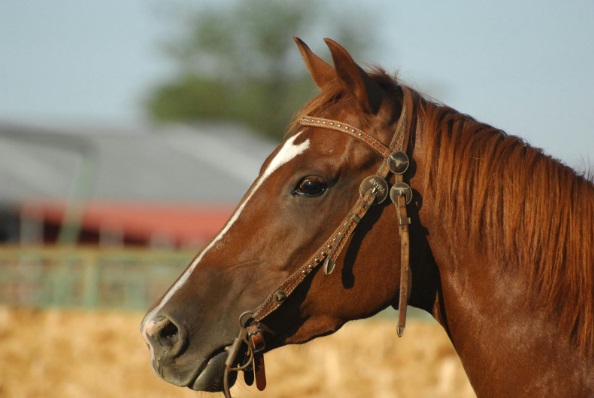Owning a horse is a rewarding experience that comes with a set of responsibilities to ensure the well-being of these majestic animals. One of the cornerstones of responsible horse ownership is regular veterinary check-ups. While horses may appear robust and resilient, they are susceptible to various health issues that can be subtle or easily overlooked. A proactive approach to equine healthcare involves scheduling routine check-ups with a qualified veterinarian. In this article, we will delve into the reasons why regular veterinary check-ups are indispensable for horse owners, shedding light on the preventive and diagnostic benefits that contribute to the overall health and longevity of these magnificent creatures.

Regular veterinary check-ups play a pivotal role in the early detection of potential health issues that may go unnoticed by the untrained eye. Horses, being prey animals, are adept at concealing signs of illness or discomfort to avoid appearing vulnerable in the wild. Consequently, subtle symptoms that may indicate underlying health problems can be easily missed by horse owners. During routine check-ups, veterinarians conduct a thorough examination, checking vital signs, and dental health, and observing the horse’s behavior. This allows them to identify issues such as dental problems, musculoskeletal issues, or internal disorders in their early stages. Early detection not only facilitates prompt treatment but can also prevent the progression of certain conditions, ultimately saving both the horse and the owner from unnecessary suffering and financial burdens.
Every horse is unique, and their healthcare needs can vary based on factors such as age, breed, and activity level. Regular veterinary check-ups provide an opportunity for veterinarians to assess the individual needs of each horse and tailor preventive care plans accordingly. This may include vaccinations, parasite control, dental care, and nutritional adjustments. Preventive measures are crucial in maintaining the overall health and performance of horses, reducing the risk of infectious diseases, and minimizing the chances of developing chronic conditions. A customized approach to preventive care ensures that horses receive the specific attention they require, contributing to their longevity and quality of life.
For horse owners involved in equestrian activities such as riding, racing, or competitive sports, regular veterinary check-ups are essential for optimizing the horse’s performance and ensuring longevity in their chosen discipline. Veterinarians can assess the horse’s physical condition, address any musculoskeletal issues, and provide guidance on nutrition and conditioning. This proactive approach not only enhances the horse’s athletic capabilities but also helps prevent injuries that may arise from overexertion or underlying health problems. By partnering with a veterinarian to monitor the horse’s well-being, owners can make informed decisions about training regimens, ensuring that the horse is physically and mentally prepared for the demands of their specific activities. In the long run, this approach contributes to a fulfilling and enduring partnership between the horse and the owner.
Ensuring the health and well-being of horses extends beyond veterinary care to include proper monitoring of their weight and body condition. Investing in scales, load cells, and test weights can be a valuable addition to a horse owner’s toolkit. These tools allow for regular weight checks, aiding in the early detection of nutritional imbalances, changes in health status, or the effectiveness of a feeding regimen. As explained by experts from 1800scales.com, online platforms dedicated to equine care provide a convenient avenue to buy scales, load cells, and test weights. Reputable websites offer a range of options suited to various horse sizes and needs. Integrating these weighing solutions into a comprehensive equine health management plan ensures that owners can actively participate in their horse’s well-being between veterinary visits, fostering a proactive approach to health and fitness.
Equine nutrition is a cornerstone of their overall well-being and a vital aspect that horse owners can actively influence. Regular veterinary check-ups often involve discussions about the horse’s diet, but delving deeper into nutritional excellence requires a more nuanced approach. Consider consulting with equine nutritionists or utilizing online resources dedicated to equine nutrition. These platforms offer insights into formulating well-balanced diets, considering factors such as age, activity level, and any underlying health conditions. By focusing on the nutritional aspect of equine care, horse owners can proactively contribute to the prevention of common issues such as obesity, colic, and metabolic disorders.

Beyond conventional veterinary care, there is a growing awareness of the benefits of alternative therapies in promoting holistic equine wellness. Techniques such as acupuncture, chiropractic care, and massage therapy can complement traditional veterinary practices. Engaging with qualified practitioners or attending workshops on equine alternative therapies opens up new avenues for horse owners to enhance the overall well-being of their animals. Integrating these holistic approaches can contribute to stress reduction, improved mobility, and a heightened sense of balance for the horse. By expanding the horizons of care beyond the routine, horse owners can cultivate a more comprehensive and personalized approach to equine health.
In the tapestry of equine care, the combination of regular veterinary check-ups, weighing solutions, nutritional excellence, and holistic therapies weaves a comprehensive framework for the optimal health of horses. Proactive engagement in these various facets empowers horse owners to be stewards of their animals’ well-being. Whether it’s investing in the latest technologies to Buy Scales, Load Cells, and Test Weights or exploring alternative therapies, the commitment to holistic equine care ensures that these magnificent creatures thrive in every aspect of their lives. As we navigate the journey of responsible horse ownership, let us embrace the multifaceted approach that considers the physical, nutritional, and emotional aspects of equine health.
Subscribe today and receive latest Livery List news and guides direct to your inbox